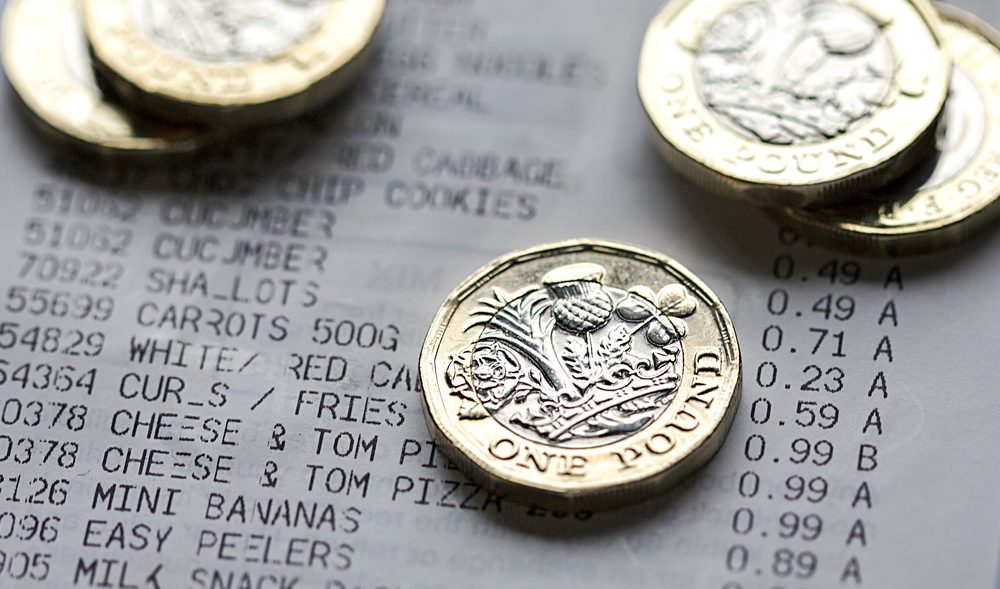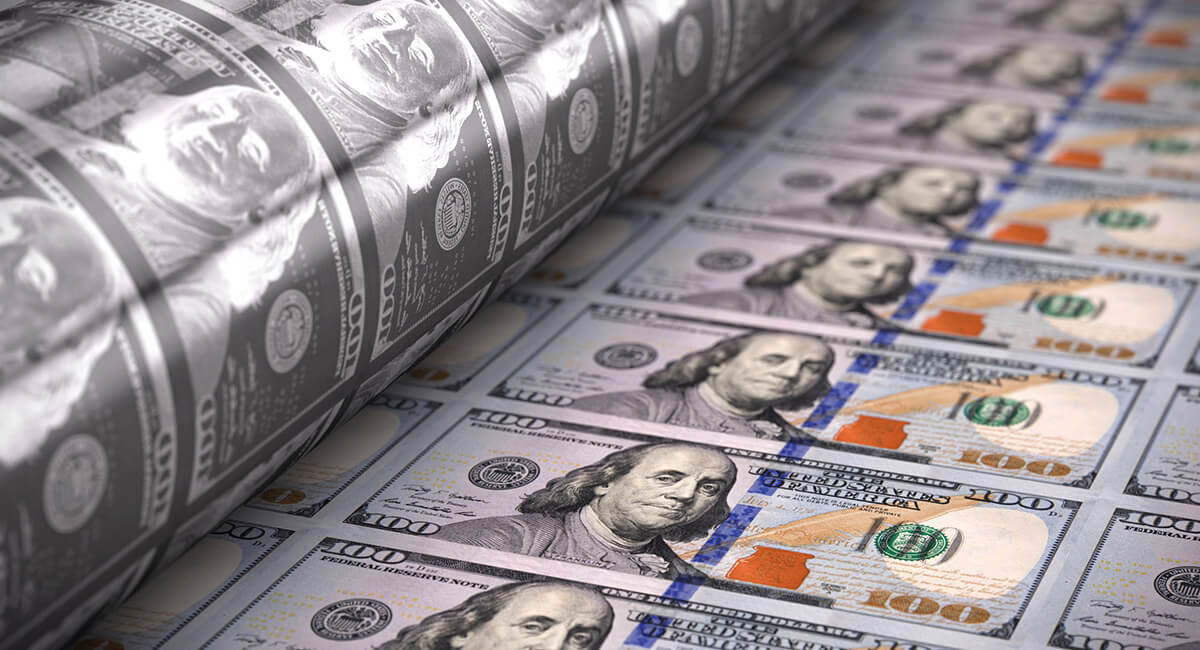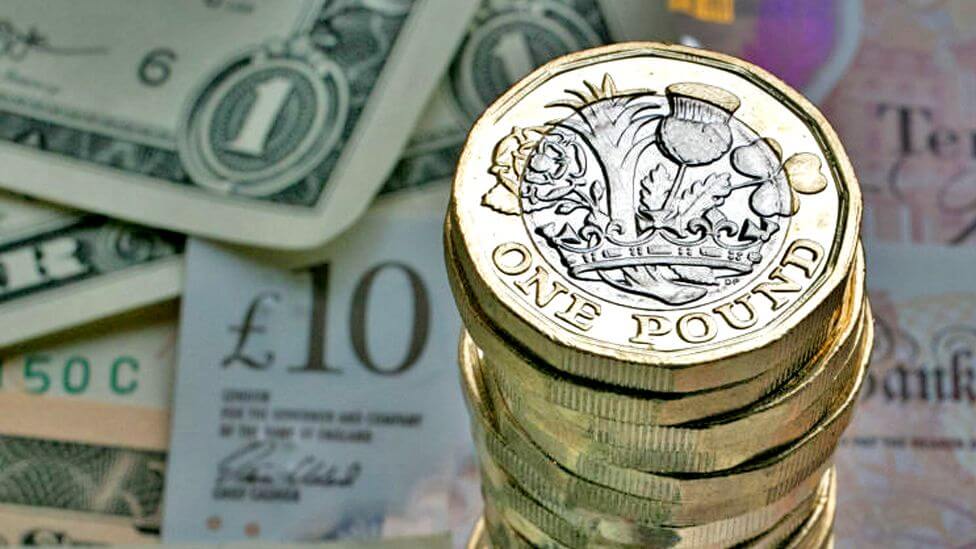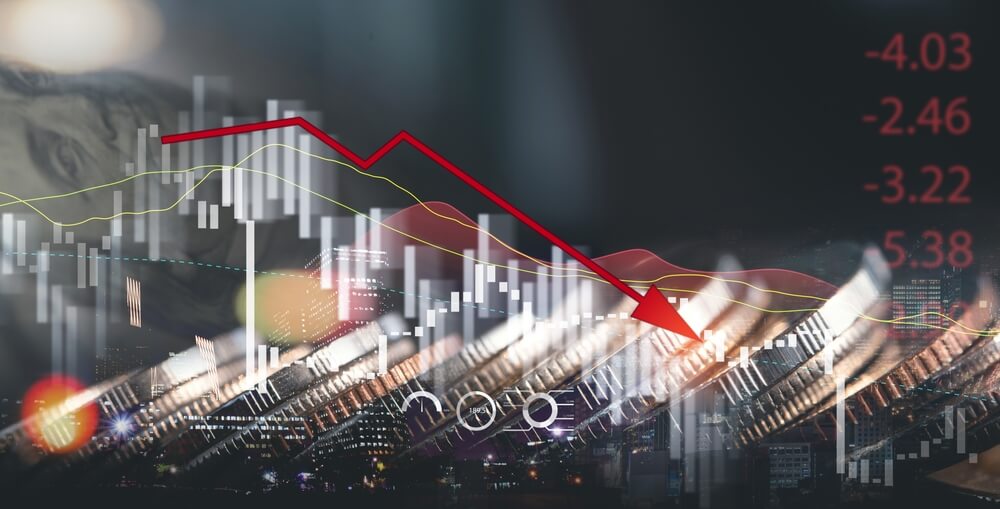
Asian equity markets were lower following yesterday’s stronger-than-expected US producer price inflation data and some hawkish Fed comments. Treasury yields climbed as markets reprice US policy rate expectations towards three further 25bp increases by the summer and for rates to stay higher for longer. In other news, it is reported that UK PM Sunak is in Belfast to meet local party leaders in a sign that a deal with the EU on the Northern Ireland Protocol may be close.
Earlier this morning, official UK retail sales figures for January showed an unexpected month-on-month rise of 0.5%, with the ONS reporting that sales promotions supported the increase. Nevertheless, the December outturn was revised lower to -1.2% and comparisons of the latest three months to the previous three months and to the same period a year earlier were both negative, suggesting ongoing caution in consumer behaviour.
Ahead today, the economics calendar is relatively sparse. UK attention will likely turn to next week, with key releases centring on surveys including the flash PMIs, GfK consumer confidence and CBI distributive trades report. They will all provide further insights into reported activity and confidence in February.
In the Eurozone, the ECB’s Villeroy (Bank of France Governor) will speak on monetary policy and inflation. President Lagarde reiterated earlier this week that the ECB intends to raise interest rates again in March by 50bp. Next week’s calendar includes Eurozone flash PMIs and the German Ifo business survey, both of which are expected to show further improvements, adding to expectations that recession will be avoided.
Across the pond in the US, import price inflation is due today, while the Fed’s Barkin will discuss the US labour market and Fed Governor Bowman is also scheduled to speak. The focus for next week includes January personal consumption data including the deflator (the Fed’s preferred inflation gauge) and the minutes of the Fed’s last policy meeting, although the latter may be considered dated given recent developments.
The US dollar on a trade-weighted basis has risen to its highest level since early January. EUR/USD and GBP/USD are heading closer to 1.06 and 1.19, respectively. There was limited initial reaction to this morning’s UK retail sales figures. US 2- and 10-year Treasury yields continued to climb overnight, rising to 4.68% and 3.89%, respectively, at the time of writing. The UK 10-year gilt yield edged up to 3.50% at yesterday’s close.

Risk appetite was positive during the Asian trading session as investors digested the latest economic data and their implications for the balance of risks for inflation and growth. Yesterday’s US retail sales figures pointed to a strong start to the year for consumer spending, helped by the mild weather. In the UK, CPI fell by more than expected which likely provides Bank of England (BoE) rate-setters more flexibility at the next policy update in March, although there will be a lot more data due between now and then, including another CPI report.
There are no major economic data releases for the UK or the Eurozone today, but there will be plenty of central bank speakers, which could provide fresh insights into the policy landscape ahead. BoE Chief Economist Pill speaks later today. He recently indicated that the next policy move is more likely to be another hike rather than a cut or a hold. Markets attach a high probability of (but are not fully priced for) a 25bp rise next month. The ECB, meanwhile, has said explicitly that it ‘intends’ to raise rates again by 50bp in March, a position which was repeated yesterday by President Lagarde. ECB speakers today include Chief Economist Lane, Executive Board member Panetta and Bundesbank President Nagel. Earlier this week, the European Commission raised its Eurozone growth forecast for this year to 0.9% and lowered its inflation forecast to 5.6%.
In the US, the most important data this week have arguably been released already. Nevertheless, today’s reports will still generate interest and include producer price inflation, housing data, weekly jobless claims and the Philadelphia Fed manufacturing survey. PPI inflation is expected to fall to 5.4% in the year-on-year comparison, while initial jobless claims are expected to remain low, suggesting limited redundancies. Housing starts, however, are forecast to fall again, with the sector affected by rising interest rates, while the Philly Fed index is predicted to improve but remain negative. Fed speakers include Mester and Bullard who will discuss the economic outlook.
Early tomorrow, we forecast official data on the volume of UK retail sales in January to fall by 0.7% (month on month), reflecting ongoing caution among consumers who are facing a squeeze on their real incomes due to higher prices. Consumer confidence remains near all-time lows, although there are tentative signs in the survey that feelings about future personal finances have started to improve. As the chart below shows, rising prices mean that consumers are having to spend more to buy less in real terms.
GBP/USD touched below 1.20 yesterday following a combination of weaker-than-expected UK CPI inflation and strong US retail sales. It has recovered slightly overnight in Asia. UK 10-year gilt yields fell yesterday, in contrast to their US and German counterparts.

UK gilt and US Treasury yields both rose yesterday after data suggested that the recent improvement in US Inflation may be close to stalling. The US dollar rose against both the euro and sterling on expectations of further US rate hikes. Sterling fell further this morning after the UK inflation drop boosted hopes the BoE may not raise interest rates again in March.

Asian equities are mostly up this morning. Japan posted a smaller-than-forecast Q4 GDP rise of 0.2% following a downwardly revised decline of 0.3% in Q3. The New York Federal Reserve’s survey of consumer expectations saw the largest one-month drop in US income expectation in its 10-year history.
Just released UK labour market data showed conditions are still tight enough to provide ongoing concerns to the Bank of England that domestic inflationary pressures may not be easing enough to allow inflation to fall back to target. Employment in the three months to December rose by a larger than expected 74,000 while the unemployment rate, held at 3.7%. Moreover, while overall earnings growth slowed, regular pay growth picked up by more than expected to 6.7% suggesting that settlements are still rising.
Due to favourable base effects, we expect annual US CPI inflation to have fallen for the seven consecutive month in January. However, this month’s fall to 6.3% from 6.5% is expected to be smaller than other recent drops. Meanwhile the monthly rate is forecast to increase by 0.5% due to higher gasoline prices. It also seems that used car prices rose sharply during the month, which will push up both overall and core inflation, while elevated services inflation is also likely to continue to be an issue. Consequently, while we expect annual core CPI to ease, the monthly increase is forecast to match December’s upwardly revised 0.4%m/m rise.
Overall, the data seems set to be consistent with US Federal Reserve Chair Powell’s recent cautionary comments that the disinflationary process is likely to be bumpy. The several Fed policymakers who are due to speak today are expected to reiterate the message that US interest rates have further to rise. The rest of today’s calendar is light. Eurozone Q4 GDP is an update which is not expected to be revised from the first reading that showed a 0.1% rise. However, the report may provide some interesting new detail.
January UK CPI data out early tomorrow is expected to see a third consecutive fall in annual inflation. However, it is forecast to remain in double digits for now, in contrast to the US and the Eurozone. We project the headline rate to fall to 10.2% from 10.5% – driven in part by petrol prices – and see core CPI dropping to 6.1% from 6.3%. There is a higher degree of uncertainty over the outcomes because the inflation data will incorporate new weights. The broader picture is that inflation is on the way down but only gradually.
UK gilt yields rose again yesterday despite a modest rally in US Treasury yields that has continued overnight. The inflation data due over the next two days may have significant impacts on both markets. The US dollar slipped yesterday against both the euro and sterling.

Asian equities are mixed this morning with Chinese indices higher but most other markets lower. Friday reports of revisions to past US CPI inflation data and a higher-than-expected reading on consumer inflation expectations have raised concerns that US interest rates may rise by more than previously expected. This is seen as having potentially knock-on effects for interest rates elsewhere. In the UK, media reports suggest that the government is planning a security review following the incursion of Chinese balloons into Western airspace.
The impact of the recent very strong US jobs report continues to linger in financial markets. The data led Federal Reserve Chair Powell and other Fed policymakers to again highlight the probable need to raise interest rates further and to keep them higher for longer. This time global markets paid more attention and, as a result, risk sentiment turned more negative. The coming week will again see the focus on the chances of an early pivot in monetary policy.
This week’s data calendar is busy, particular in the UK and the UK where key releases include the latest inflation updates. However, today is very light. New forecasts from the European Commission are likely to follow the trend seen in other recent forecast updates with growth expectations being revised up and inflation down. Nevertheless, the Commission is likely to still warn that the level of uncertainty is high and the global economy faces a bumpy ride this year.
Overnight the Japanese Government is expected to confirm to the Diet that Kazuo Ueda is the nominee to be new Bank of Japan Governor. That news came as a surprise to markets on Friday and initially led to a jump in the yen on concerns that that it may signal a move to a tighter monetary policy. The yen subsequently settled down after Ueda said he did no,t plan an immediate change in policy but markets will be looking for further details on his views. Japanese GDP for Q4 will also be released and is expected to show a rebound from Q3’s decline.
The latest UK labour market data out early tomorrow will be watched for signs of cooling. Unfilled job vacancies are falling but for now remain uncomfortably high. Moreover, we expect the latest release to show a further fall in the unemployment rate and another rise in employment. Also, while total pay growth may have slowed modestly, we project regular (ex-bonus) pay to have picked up further to 6.6%. In all, we expect it to do little to relieve Bank of England policymakers’ concerns about domestic inflationary pressures.
Bond yields posted sharp rises across a number of markets on Friday as concerns grew that inflation may take longer than previously expected to fall back to target levels. UK and US 10-year yields have now risen by about 40 basis points from their recent lows. In currency markets, ‘risk off’ has helped push the US dollar up versus both sterling and the euro.

Asian equities are mostly lower this morning. That followed declines in US equities that reports suggest were at least partly induced by further Fed comments that US interest rates have further to rise. Chinese inflation data for January was mixed as annual producer price inflation fell to -0.8% in January but consumer price inflation accelerated to 2.1% from 1.8% in December. The Japanese government has confirmed that it will announce its nominee for the next Bank of Japan Governor on 14th February. Early reports suggest that the favourite for the nomination and has refused to accept.
Just released UK GDP data showed a fall of 0.5% in December led by a big drop in services activity. That was a bigger decline than expected but a contraction for Q4 as a whole was still avoided with activity flat on the quarter. That means the UK just missed a ‘technical’ recession (at least two consecutive quarters of negative growth) in late 2022. The detail of the drivers of GDP showed that growth in Q4 was driven by stronger growth in domestic demand partially offset by weakness in international trade.
In Italy, industrial production is expected to have risen modestly in December. So far the outturns for other Eurozone countries have been mixed. French industrial production rose by 1.1% but German output slumped by 3.1%. Today’s Italian data will provide further indications of how the Eurozone’s factory sector is coping with the impact of high energy prices and rising interest rates.
In Canada, monthly labour market data for January are expected to provide some indications that wage growth is slowing but also that the labour market remains tight. The minutes of the Bank of Canada’s last policy meeting acknowledged that picture. However, it also said that domestic inflationary pressures from this area are expected to ease. The BoC has indicated that it will now ‘pause’ after raising interest rates significantly and even a much stronger-than-expected report today is unlikely to change that plan.
In the US, consumer confidence has been rebounding of late after a big fall last year. That seems in part due to the recent fall in inflation but, as gasoline prices rose last month, it will be interesting to see if today’s University of Michigan consumer sentiment survey shows some weakening. The latest readings on inflationary expectations will also be interesting in light of the petrol price bounce.
US bond yields rose yesterday reflecting rising market concerns that earlier estimates of the outlook for US interest rates were too optimistic. In contrast, UK 10-year gilt yields fell modestly. In currency markets, sterling edged up against both the euro and the US dollar, but has softened overnight.

Mixed Asian equity market performance followed the close in the red on Wall Street. Several US Fed speakers have reinforced the message that interest rates will need to be raised further and may need to be kept higher for longer after last Friday’s strong jobs report. Overnight, the UK RICS survey showed a further decline in the house price balance in January to -47%, the weakest since 2009, compared with -42% in December. RICS said that the market remained subdued but also noted a less harsh economic environment this year than previously envisaged.
The focus for sterling markets today is testimony at the House of Commons Treasury Select Committee of Bank of England (BoE) Governor Bailey and other MPC members – Chief Economist Pill and external members Tenreyro and Haskel. The BoE MPC last week voted to raise interest rates again by 50bp to 4% but was more circumspect about further policy tightening. The hearing will give for policymakers the opportunity to expand on this and to address any misperceptions they might feel to be in the initial reaction to their latest moves.
In the Eurozone, the delayed release of German January CPI inflation fell to 9.2% from 9.6% (EU-harmonised measure). The outturn was weaker than expected. Nevertheless, it suggests Eurozone flash estimate of 8.5% for January could be revised up but would remain lower than in December. Ahead, there will be attention on ECB speakers this evening including Bundesbank President Nagel and Vice-President Guindos. Sweden’s Riksbank is expected to raise interest rates today by 50bp to 3%.
In the US, weekly unemployment claims data are forecast to reaffirm a strong labour market. We expect initial claims to edge up to 195k, still at very low levels despite anecdotal reports of significant job losses in certain parts of the economy such as the tech sector.
Early tomorrow at 07:00GMT, UK December and Q4 GDP statistics will be released. It posted an unexpected, albeit modest, rise in November which seemed to make it far less likely that Q4 GDP would have followed up on Q3’s decline with another fall. That would mean a technical recession (at least two consecutive quarters of declines) will probably be avoided for now. We expect a drop of 0.3% for December which, assuming no revisions, would mean that Q4 activity was flat. The detail on quarterly changes will also provide an indication how much of recent activity reflects growth in final demand versus inventory accumulation, given recent reports that producers have seen a sharp rise in stocks.
The US dollar is slightly lower during the Asian trading session but has held on to most of its gains following last Friday’s stellar jobs report. The pound has crept back above $1.21 and has shown some renewed strength against the euro this week.

Asian equity markets are mixed with Chinese and Japanese indices down but most others up. Fed Chair Powell in an interview largely repeated his comments of last week that interest rates have further to rise. However, markets seemed relieved that he was not more hawkish in the wake of last Friday’s very strong employment report. US President Biden in his State of the Union address called on Congress to raise the debt ceiling to avoid a default.
There are no data releases in the UK or the Eurozone for the rest of today and also nothing in the US. However, late tonight money supply data will be released for Japan. There is ongoing speculation that the long period of very loose Japanese monetary policy will come to an end this year. Today’s money supply data is unlikely to provide any new insight on this but the identity of the next Bank of Japan Governor just might.
Current BoJ Governor Kuroda, who is set to end his term in April, continues to strongly advocate the need for ultra-loose policy despite the recent move in inflation above the BoJ’s target for the first time in many years. He regards the recent rise as possibly temporary but some evidence, including an acceleration in wages, suggests it may be more permanent. So a big question is whether his successor will have a different view? His identity is yet to be announced but speculation is centring on Masayoshi Amamiya, one of Kuroda’s deputies. He would be seen as a continuity candidate, whereas an alternative may raise the odds on a policy shift. The outcome could be highly important for financial markets as it may trigger further volatility in the yen.
Several US Federal Reserve policymakers are scheduled to speak today. Yesterday Fed Chair Powell again said it was premature to think enough had been done to bring inflation back down to the Fed’s 2% target. In the wake of last week’s much stronger than expected employment report, he continued to warn that a tight labour may still push up wages. Today’s speakers seem likely to support those comments and signal the likelihood of further US interest rate rises.
Meanwhile, the Bank of Canada will publish its first “summary of deliberations” at a policy meeting. These seem set to be akin to the minutes published by other central banks. They may provide more detail on the BoC’s latest decision to raise interest rates and its guidance that it will now pause. It will also be interesting to see if anything is said about market expectations of rate cuts in the second half of the year.
Bond yields in the US and the UK rose again yesterday as markets remained unsure on the outlook for interest rates. In currency markets, the US dollar was little changed as it consolidated after the rebound of the last few days. However, markets will be warily watching comments by Fed officials today for their reaction to Friday’s strong payrolls report.

Asian equity markets are mostly higher and Treasury yields and the US dollar lower ahead of Fed Chair Powell’s interview later today. The Fed’s Bostic yesterday said last Friday’s strong jobs data could lead to a higher peak in policy rates. The Reserve Bank of Australia overnight increased interest rates by 25bp to 3.35% as expected and indicated that further hikes will be needed. Strong Japanese wage data showing a jump up to 4.8% in December compared with a year earlier further fuelled speculation of a policy change by the Bank of Japan later this year.
The British Retail Consortium (BRC) overnight released its ‘unofficial’ January retail sales figures. They showed total sales growth of 4.2%, down from 6.9% in December. Still, the BRC outturn is not adjusted for inflation and is flattered by rising prices. There are no other major UK data releases today, but the focus will be on December and Q4 GDP data on Friday. The Bank of England MPC’s Ramsden and Pill will speak at a UK Women in Economics event. Deputy Governor Cunliffe will speak separately about central bank digital currencies.
Principal market attention will be an interview with Fed Chair Powell at the Economic Club of Washington scheduled for 17:00GMT. Following last week’s Fed update, Powell indicated that there is ‘more work to do’, but he acknowledged that inflation had ‘eased somewhat’. It will be interesting to see his reaction to last Friday’s US labour market report (released after the Fed meeting) showing stellar monthly jobs growth and a five-decade low in the unemployment rate, and how confident he is that wage growth continues to moderate. The only notable US data release today is the December trade report which is forecast to show a widening of the deficit to around $68bn in line with the advance goods figures.
In the Eurozone, German December industrial production, released earlier, fell 3.1% which confirms a weak end to the year. Ahead this morning, the ECB will release latest results of its Consumer Expectations Survey. The last survey showed a fall in inflation expectations at both one year and two years ahead but remaining elevated above the 2% target. The ECB’s Villeroy and Schnabel are scheduled to speak at separate events, with investors looking for confirmation of another probable 50bp hike at the next policy meeting in March and the likelihood of more tightening in Q2.
US President Biden will give his annual State of the Union address this evening (ET). The Democrats’ loss of control of the Senate limits his ability to pursue any new policy initiatives. He may, however, use the opportunity to urge Congress to raise the federal debt ceiling and warn of the potential negative economic consequences if this is not done.
US Treasury yields and the dollar pulled back overnight after gains following Friday’s US jobs data. EUR/USD and GBP/USD edged higher and are trading above 1.07 and 1.20, respectively.

Stocks across the Asia-Pacific region are mostly trading lower this morning as financial markets continued to react to Friday’s stronger-than-expected US labour market report. Concerns of a resurgence in US-China tensions have also weighed on sentiment following the recent weather balloon incident across the US. US Secretary of State Blinken cancelled his expected trip to China in response, though there are reports that the Biden administration is mulling over whether to still send Mr Blinken to China with a much firmer message.
Prior to the US jobs report, last week’s policy announcements from three of the major global central banks – the US Fed, Bank of England (BoE) and European Central Bank (ECB) – had done little to alter the positive market mood music. Despite each of them raising interest rates, the key message from all three was clear that inflation had probably peaked. That reinforced market expectations that interest rates are also therefore at or not too far from their peaks and saw a further fall in bond yields. However, the much stronger than expected US employment report late on Friday provided a timely reminder that the fight against inflation was far from won and that there still remained substantial upside risks.
The Bank of England raised rates for a tenth successive meeting last week, this time by 50bp to take Bank Rate up to 4.00%, but also suggested that rates may now have peaked, although it still warned of further tightening if inflationary pressures proved more persistent. Later today, the BoE’s Chief Economist, Huw Pill, is due to speak on a live webinar at which markets will be watching closely for further clues on the policy outlook, particularly how high or low the barrier to further rate increases is, and also whether interest rates could be cut later this year/early in 2024 – as markets are currently expecting. Speaking on Friday, Mr Pill noted that policy makers must avoid going too far in lifting borrowing costs.
Ahead of that, Catherine Mann, an external member of the MPC, is due to speak this morning (08:40 GMT). Ms Mann has been one of the most hawkish members of the Committee in recent months, having advocated for larger increases in a number of meetings last year. However, at the February meeting, she moved in line with the majority and supported the decision to hike rates by 50bp. Markets will be watching her comments closely for an explanation of her vote and how strongly she implies that further hikes may or may not be forthcoming.
Data wise, today’s calendar is restricted to second-tier releases, in the shape of the UK construction PMI, Eurozone Sentix investor confidence survey and retail sales reports. Overnight, the Reserve Bank of Australia is expected to raise interest rates at its first meeting of the year with forecasts centred on a 25bp increase in the cash rate to 3.35%, which would take it to its highest level since late-2012. Domestically, the BRC will release its UK retail sales report for January.
The softening in risk sentiment has boosted the US dollar with the Bloomberg USD index trading at its highest in almost a month. As a result, GBP/USD has fallen to just above 1.20 after having started last week around 1.24. Meanwhile, EUR/USD has eased below 1.08.
CFDs are complex instruments and come with a high risk of losing money rapidly due to leverage. You should consider whether you understand how CFDs work and whether you can afford to take the high risk of losing your money. Trading derivatives is risky. It isn't suitable for everyone; you could lose substantially more than your initial investment. You don't own or have rights to the underlying assets. Past performance is no indication of future performance and tax laws are subject to change. The information on this website is general in nature and doesn't consider your personal objectives, financial circumstances, or needs. Please read our legal documents and ensure that you fully understand the risks before you make any trading decisions.
The information on this site is not intended for residents of Canada, the United States, any other restricted jurisdictions (e.g. blacklisted FATF countries) or use by any person in any country or jurisdiction where such distribution or use would be contrary to local law or regulation.
Moneta Markets is a trading name of Moneta Markets Ltd, authorised and regulated by the Financial Services Authority of Seychelles with License No. SD144. Moneta Markets Ltd is registered and located at Room B11, 1st Floor, Providence Complex, Providence, Mahe, Seychelles which operates under www.monetamarkets.sc.
You should consider whether you’re part of our target market by reviewing our , and read our other legal documents to ensure you fully understand the risks before you make any trading decisions. We encourage you to seek independent advice if necessary.